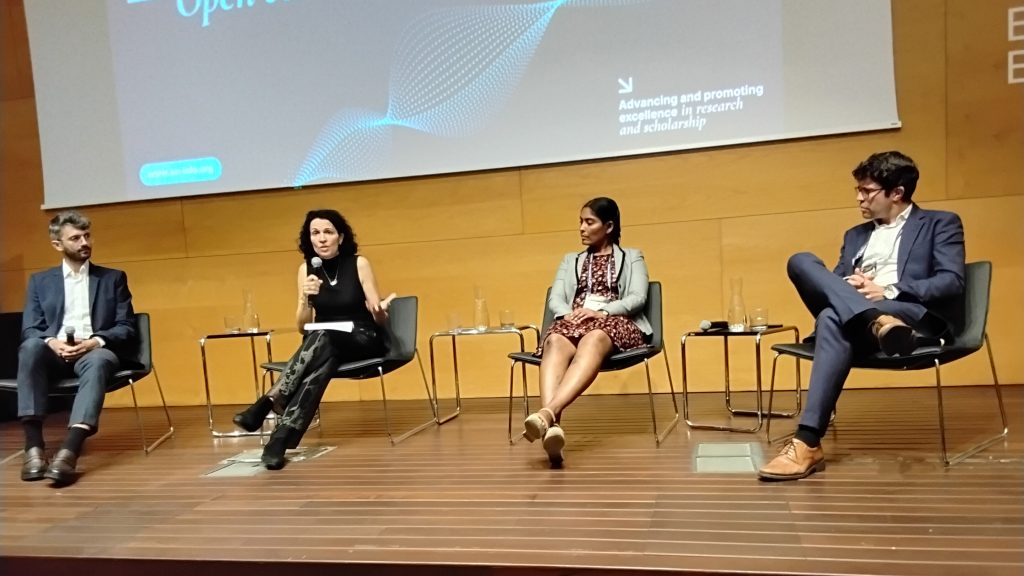
– How many of you think there is politics in science, moderator Scott Bremer asked the audience at the start of the YAE (Young Academy of Europe) panel event “Public trust in science and navigating political tensions” at Building Bridges Barcelona conference. Most of the audience raised their hands.
Even as this very informal poll seemed to confirm the presence of politics in science, the rest of the panel focused on some of the more elusive disguises that politics can come in in science, such as barriers, taboos or self-censoring in the face of possible controversies.
The event was organised by the Young Academy of Europe and panellists were Anna Kuppuswamy from University of Leeds (also the new chair of YAE), Emilian Mihailov from University of Bucharest.
The final panellist was Ruth Rodriguez, a professor in the Department of Communication at Pompeu Fabra University. Her main lines of research are media accountability and disinformation.
In her presentation, Ruth Rodríguez spoke about knowledge transfer and the need to rethink its meaning for each discipline. She also mentioned the dimensions of media accountability, self-regulation, citizen participation, and transparency, which can serve as tools to strengthen innovation, democratic engagement, and connecting academia with society.
Unexplored territories can create barriers to science
Anna Kuppuswamy described her own field – neuroscience, and particularly her topic – the illness described as fatigue, as an area where politics can be a barrier to science.
– The illness of fatigue is an unexplored territory. All the uncertainties on what the causes of fatigue are, can create barriers to science, and these barriers can also come from the patients themselves. In my field, we’ve seen guidelines change without the changes being based in science.
– On the other hand, science takes place in a partnership with the wider society. Sometimes managing conflicts really is about handling misunderstandings. That’s something I see in my field of research on fatigue, Anna Kuppuswamy said.
Good science needs good politics
The YAE panel on the final day of the Building Bridges conference discussed multiple perspectives on how scientists – as individuals and as a group – navigate social and political polarization on the role and organisation of science in Europe today. The event explored the extent to which scientists work within a politicised context, and what affordances and strategies do they deploy to establish science’s role in society and relate to political trends.
– Good science needs good politics, and good politics will seek to foster freedom of thought. When scientist do their research in an environment where freedom of thought is not present, the possibility for self-censoring and taboos will increase, Emilian Mihailov said at the panel discussion.
